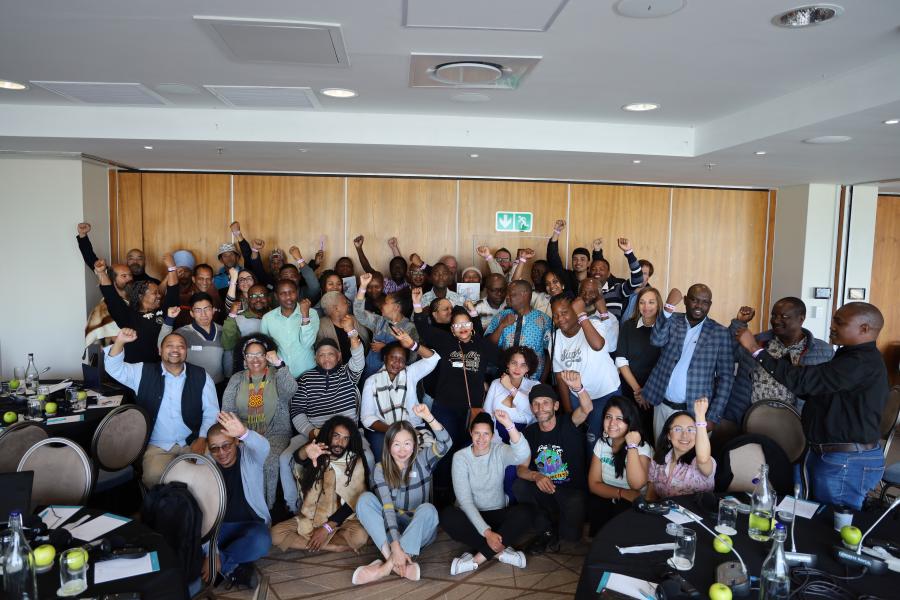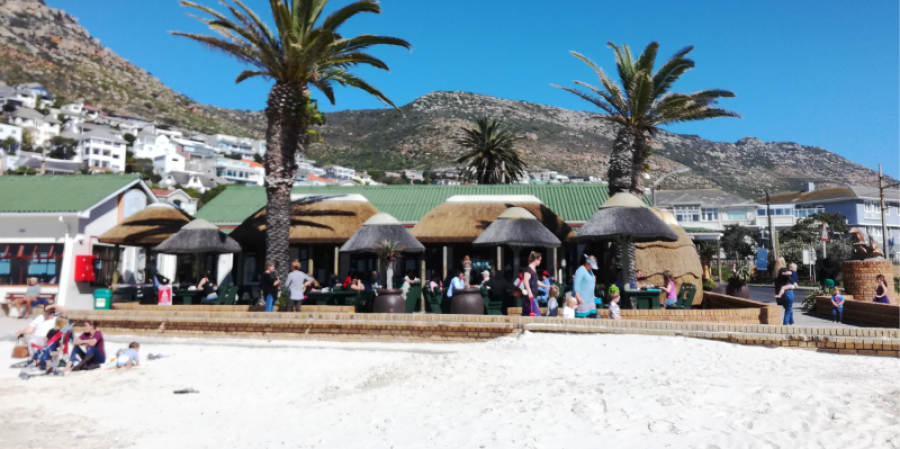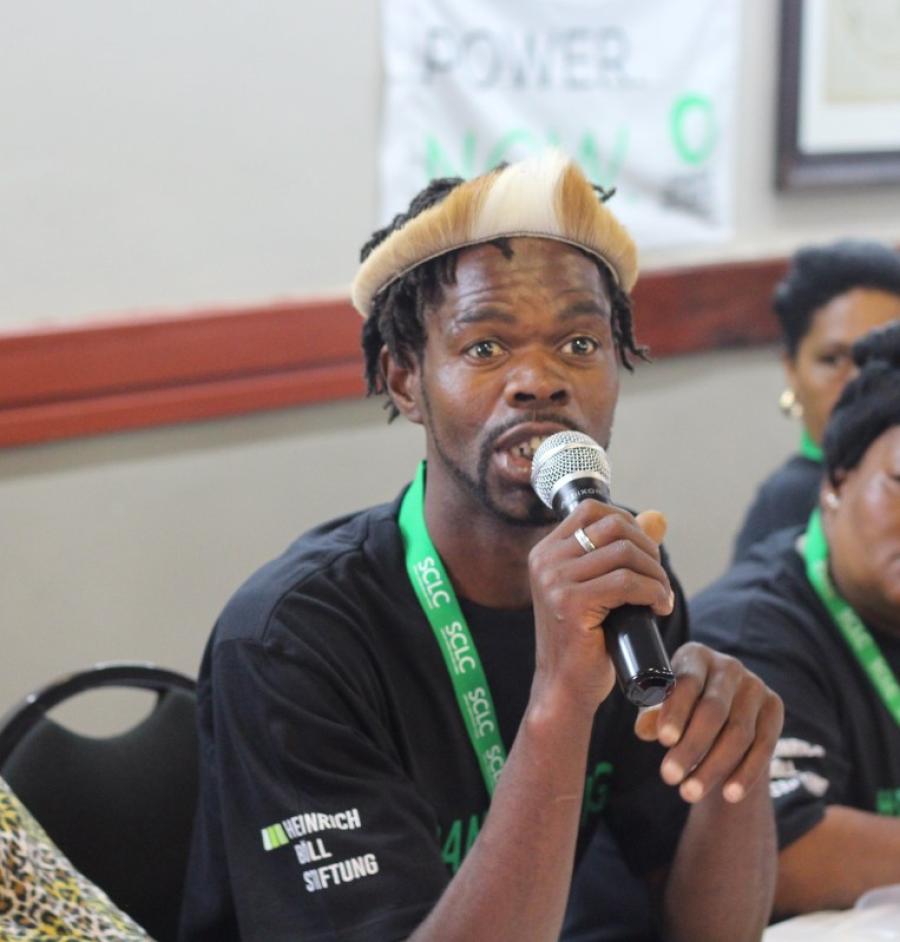
In February 2022, the Supusupu Khoikhoi First Language Project, Cultural Survival, and Natural Justice submitted a joint stakeholder report on the observations of human and Indigenous rights in South Africa. It was prepared for the Universal Periodic Review of South Africa at the 41st Session of the Human Rights Council. The UN General Assembly established the Universal Periodic Review (UPR) along with the United Nations Human Rights Council on March 15, 2006. Its purpose is to review the human rights records of the 193 UN member states, addressing the states’ obligations to respect, protect, and fulfill human rights, and to provide technical assistance to the states being reviewed. The 193 member states are divided into groups that alternate review cycles. The stake holder report will assist the UPR Working Group in reviewing the South African State in accordance with its obligations to the international human rights treaties and mechanisms it has ratified and endorsed such as the United Nations Declaration on the Rights of Indigenous Peoples (UNDRIP).
The report focuses on two groups of Indigenous Peoples in South Africa: the Khoi and the San Peoples. The San Peoples of Southern Africa are the descendants of the oldest human populations in the world, having lived in Southern Africa for nearly 200,000 years. They live across Namibia, South Africa, Botswana, and Zimbabwe and include the Khwe, !Xun, Ju'hoansi, Naro, !nuu and others. The Khoi (or Khoikoi) Peoples have lived in Southern Africa for nearly 2,000 years. Much of the Khoikoi and San peoples’ historical traditional lands were dispossessed beginning with the first instance of Colonial settlement in 1652. Today, the Khoi People consists of the Nama People who are primarily located in the Northern Cape; the Griqua who are in the Western Cape, Eastern Cape, Kwazulu Natal and Gauteng, and various other parts of the country, where Griqua churches and/or branches are located; the Korana people, primarily in Kimberly and the Free State; and the Cape Khoi who reside in the Western and Eastern Cape.
A difficulty that arose in writing this report was using the term “Indigenous Peoples,” since that is not a common term used in South Africa. The word “Indigenous” often refers to the “majority Black African” populations and therefore does not include the San and the Khoi. For the purposes of this report, we use the term Indigenous to refer to the Khoi and San Peoples, to align their status as rights holders under the UN Declaration on the Rights of Indigenous Peoples (UNDRIP).
The report highlights that South Africa continues to fail to meet its obligations to protect the rights of Khoi and San Peoples to their lands, political representation, identities, languages, and cultures. The current 2022 census still limits identification to only five classifications–Black, White, Indian/Asian, Coloured, and Other–perpetuating Aparthaid classification systems and failing to disaggregate data for Khoi and San Peoples. Khoi and San languages continue to be excluded from the nation’s official languages, and diminishing populations of language speakers put these languages in danger. Khoi and San Peoples also continue to lack formal recognition of their status as First Nations.
Ongoing Violation of Land Rights
South Africa voted for the adoption of the UNDRIP in 2016, yet it continues to violate Khoi and San Peoples’ rights to access their sacred sites. It therefore fails to uphold its responsibilities under international law. For example, the fight for the Khoi and San Peoples to access and conduct ceremonies at the sacred Table Mountain continues. Table Mountain is presently state-owned property and forms part of Table Mountain National Park. In October 2020, representatives from different Khoi and San Tribes formed an alliance aiming to reclaim Table Mountain and occupied the site until their arrest on January 1, 2021. Another pending Khoi and San land claim includes Hangberg just outside of Cape Town–an area to which Khoi and San people and people the government classified as “Coloured” were segregated in the 1950s and whose residents have been subject to evictions and displacement ever since.
The legacy of Apartheid remains present. South Africa’s White population (8% of the total population) currently owns 72% of farmland. South Africa’s Black population (80% of the total population) currently owns less than 10% of farmland. Under the purview of early 20th century Apartheid policies, 7% of farmland was allocated for division among Black, Khoi-San, and “Coloured” persons. In December 2021, the South African parliament rejected an amendment proposed to Section 25 of the Constitution intended to redress past injustices of land dispossession under Apartheid. The vote was just shy of the required two-thirds majority.
Other claims center around land that has already been designated as a protected area or is being used for other government purposes. The case of District Six in Cape Town is one example of this. District Six is a neighborhood in Cape Town whose occupants were largely classified as “Cape Coloureds.” In the 1970s, under the notorious Group Areas Act, the community was subjected to what are known in South Africa as “forced removals” in order to clear the way for white people to move in. Most of the houses were bulldozed and the people dispersed to an area known as the Cape Flats where their descendants today live in abject poverty. A process of restitution has been initiated but most of those claims remain unsettled. Free, Prior and Informed consent (FPIC) is promised in UNDRIP and must be present in order to implement a regulatory process that is more reflective of the historical redress.
Violation of Rights to Language, Culture, and Safety
While the Traditional and Khoisan Leadership Act 3 of 2019 became legislation, giving formal recognition to Khoi and San leaders, it does not recognize the Khoi and the San as First Nations nor designates their languages among the official languages of South Africa. Advocates call for the Khoi and San People to be officially recognized as the First People of South Africa, and that the languages of the Khoi and San Peoples be added to the other 11 official languages. Toroxa Breda of Supusupu, who teaches Khoikhoi, reports that 2022 to 2032 is the International Decade of Indigenous languages, yet it is already February, and there are no signs of the Pan South African Language Board (PanSALB) commemorating anything so far, not a whisper, not a poster, not a single indication of its commitment to the First Peoples of this land whose wealth built South Africa. Languages like Khoikhoi is still heard across South Africa, a language so powerful it changed the Dutch language and has influenced nguni languages like IsiXhosa.
Gender-based violence and violence against children continue to be prevalent issues as well. Statistics South Africa reports that 20% of partnered women and up to 40% of divorced/separated women have experienced gender-based violence. This data is not disaggregated for any groups and applies to women in general across South Africa. Child killings in the Western Cape in general are also cause for concern. In 2020-2021, a total of 215 children were killed over a 14 month period.
The report makes the following recommendations for the State of South Africa to:
- Take steps to facilitate dialogue with Khoi and San Peoples on healing from the lasting effects of colonization and genocide of language and culture, including provision of resources for a series of community-based workshops across the country.
- Establish a task force to develop reparative strategies and mechanisms within government institutions for addressing the history and effects of colonization and genocide.
- Take all necessary steps to address the historical injustice of land theft, starting with European colonization and continuing through the Apartheid era, including through accessible restitution procedures, expropriation, and other instruments.
- Support grassroots language revitalization movements by initiating and financing community-led collaborations with universities and schools.
- Disaggregate data about Indigenous Peoples by including Khoi and San ethnic identities in the census and eliminating the requirement that they identify with one of the current census options (White, Black, Coloured, Asian/Indian, or Other) to ensure adequate representation.
- Ensure compliance with the judicial order that paused the Amazon headquarters project proposed for a site of cultural significance to Indigenous communities in Cape Town until all stakeholders, especially Indigenous communities, are comprehensively consulted via their own representative institutions and decision-making processes and their FPIC is attained.
- Formally recognize the Khoi and San Peoples as First Nations.
- Take steps to ensure that San and Khoi Land claims predating the 1913 cut-off date are documented and recognized and that this process be concluded as speedily as possible.
- Officially recognize Khoi or San languages as amongst the country’s official languages and allocate financial resources for Indigenous language revitalization.
- Invite UN Special Rapporteur on the Rights of Indigenous Peoples to visit South Africa.
- Create a national action plan on implementing Indigenous Peoples’ rights based on the World Conference on Indigenous Peoples’ Outcome Document.
The UPR of South Africa will take place in November 2022.
Image: Walk to Save the San.



